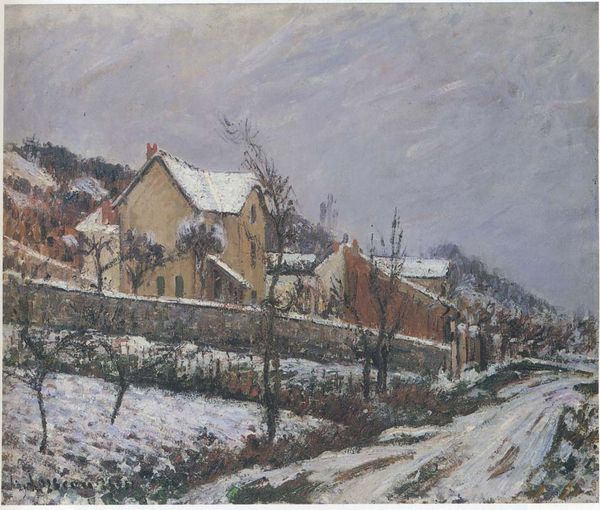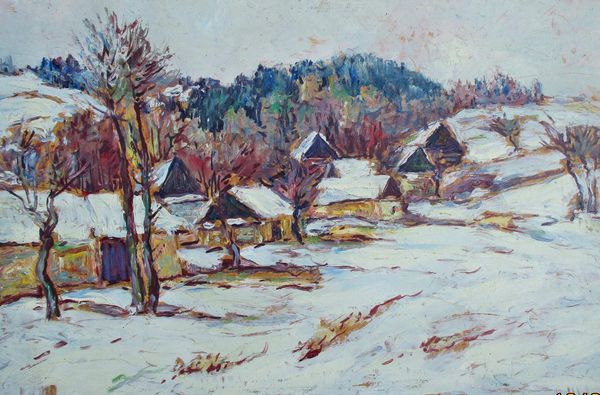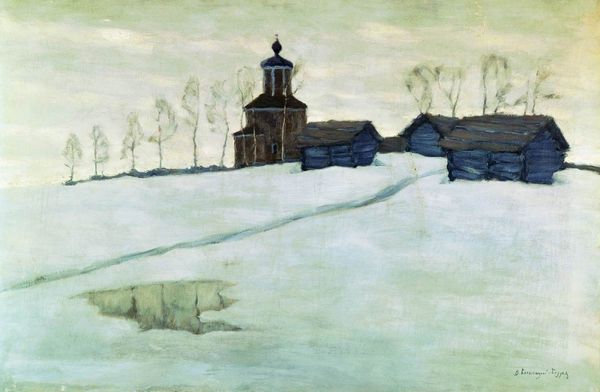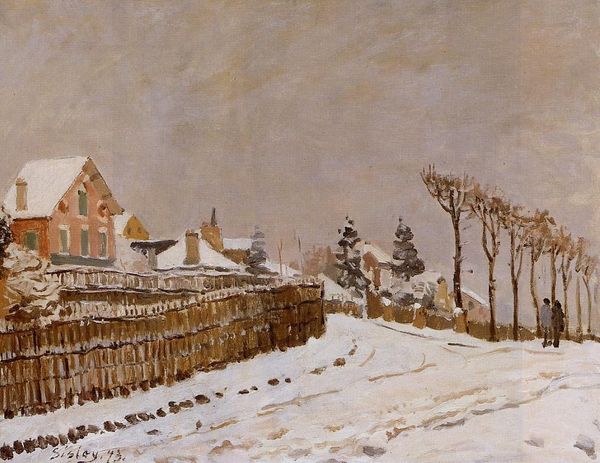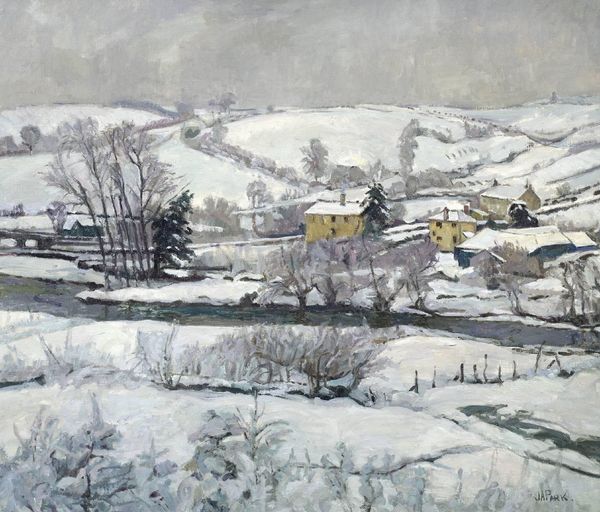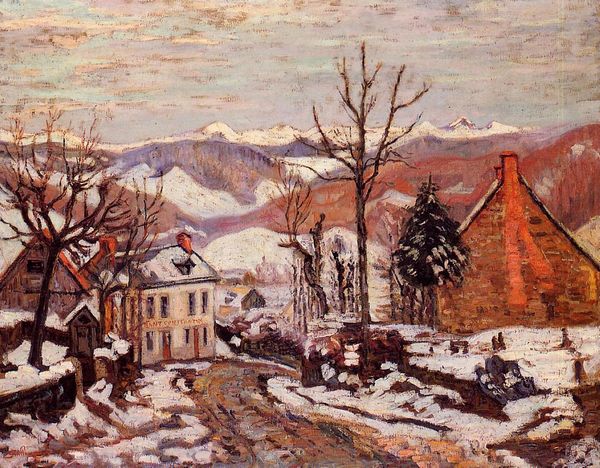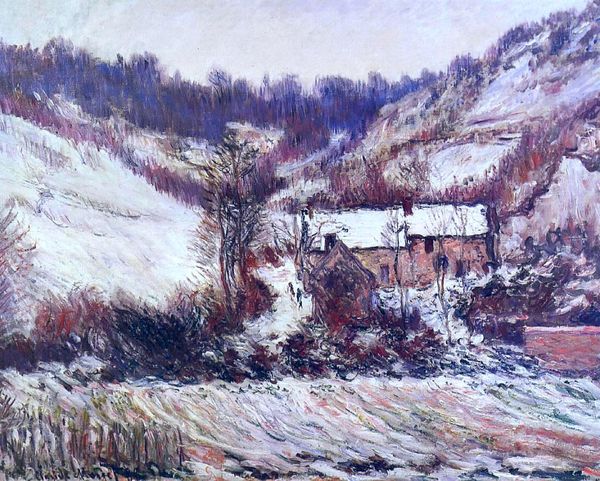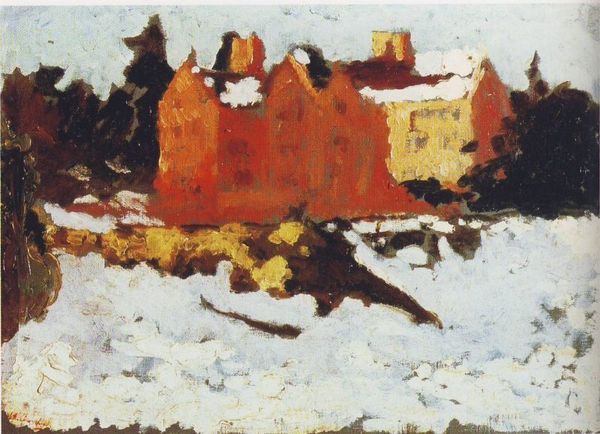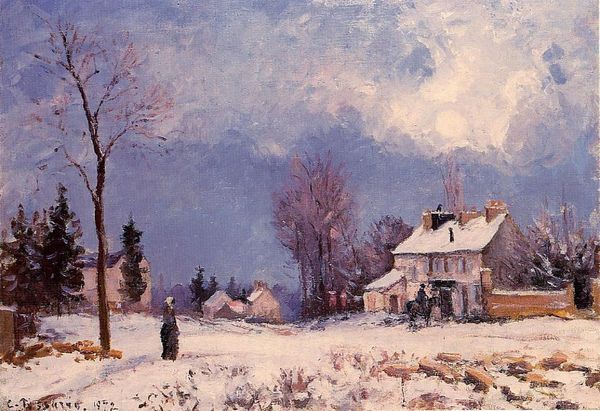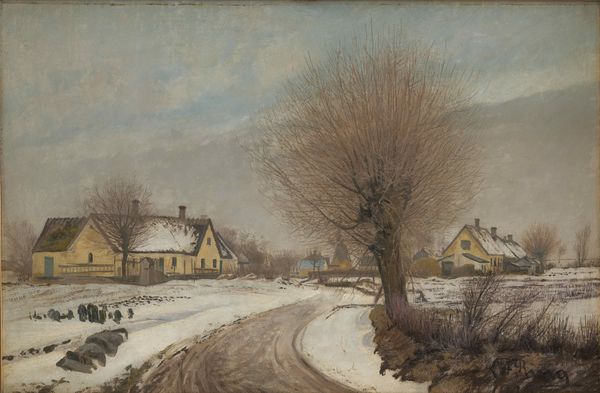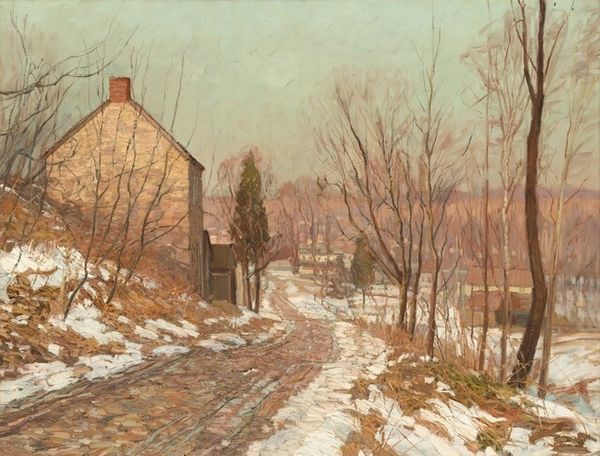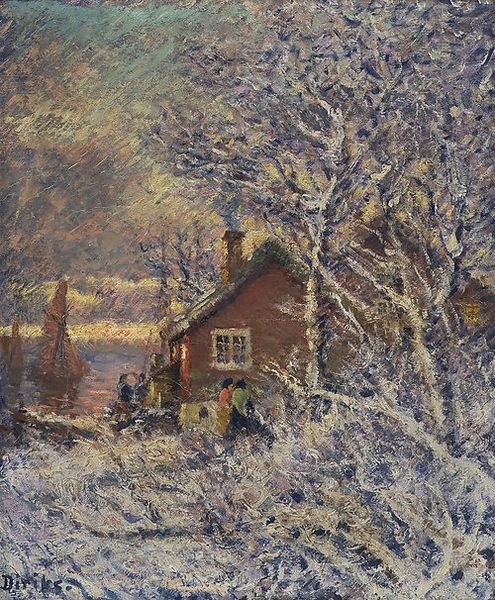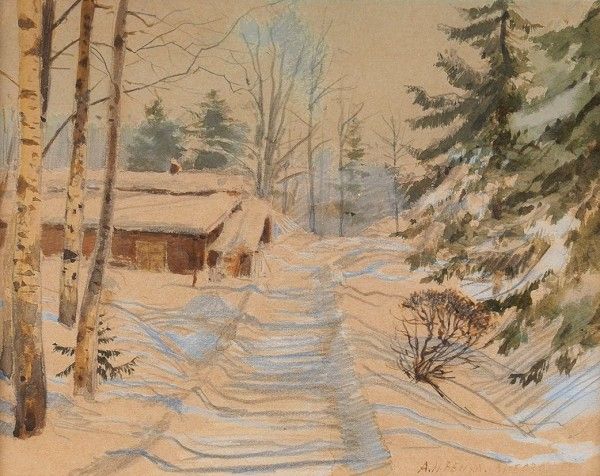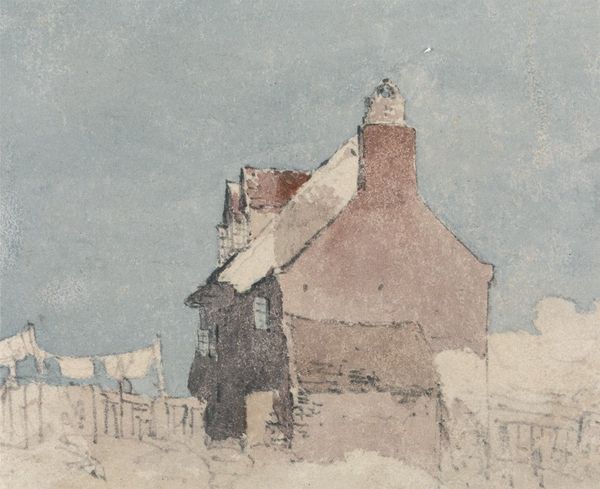
Copyright: Public Domain: Artvee
Editor: So, here we have Gustave Courbet's "Village Edge in Winter," from around 1868, an oil painting. I’m immediately struck by its stillness, that quiet, heavy snow, and I am wondering, what do you see in this piece, considering Courbet’s well known Realism? Curator: The apparent stillness, as you call it, belies the radical politics at play here. Courbet's realism wasn't just about depicting what he saw. It was about challenging the romanticized, idealized landscapes preferred by the art establishment. How might representing the mundane realities of rural life—the snow, the unglamorous buildings—become a powerful statement in its time? Editor: So, showing ordinary life *was* a statement? I guess I just assumed that landscapes, especially winter scenes, were always pretty neutral. Curator: Neutrality is a myth, especially in art! Think about what this scene *doesn't* show: no grand historical events, no mythological figures. Instead, we have a common village. Courbet is essentially democratizing the canvas, asserting the value and dignity of everyday existence, shifting art’s focus from the elite to the proletariat. Do you see any traces of that revolutionary spirit here in the brushstrokes? Editor: I see that the buildings don’t look idealized, they look weathered and kind of plain. So it’s a revolutionary act just to depict a regular village in the winter. It is forcing people to recognize beauty and value in these overlooked spaces. Curator: Precisely. And how do you think the winter season adds to this reading? How does it work within the socio-political climate? Editor: I’m thinking it’s like life slowing down. There is a stark contrast; you can see structures clearly because there is a sort of stillness and acceptance of hard realities when nature dictates terms to everyone from peasants to privileged populations. Curator: Exactly, that acknowledgement, that ‘seeing’ is what allows conversations to start! Editor: I see things so differently now. It's not just a winter scene. It’s a political act rendered in oil.
Comments
No comments
Be the first to comment and join the conversation on the ultimate creative platform.
